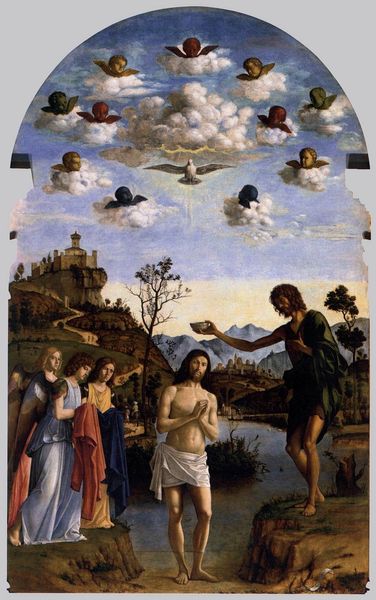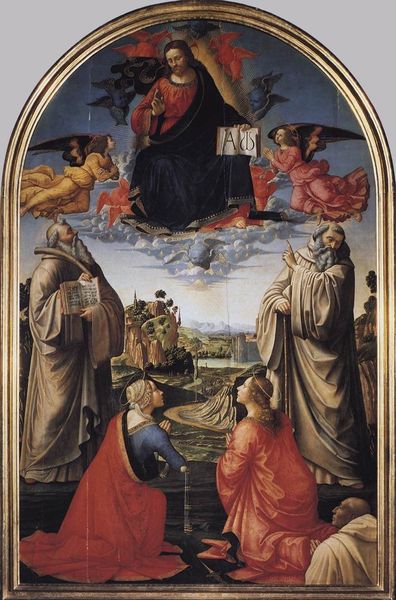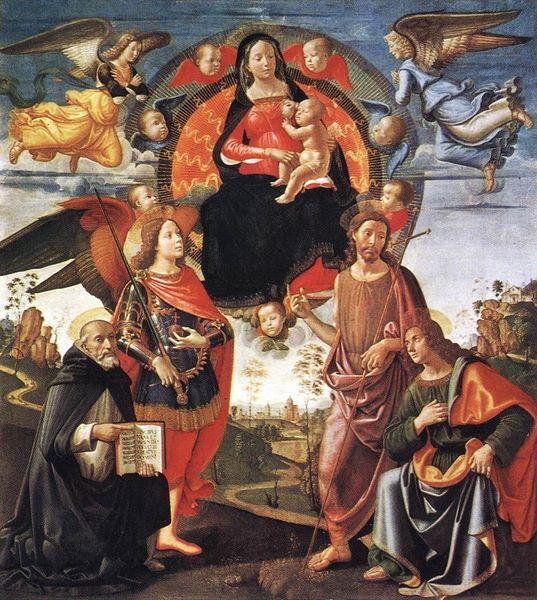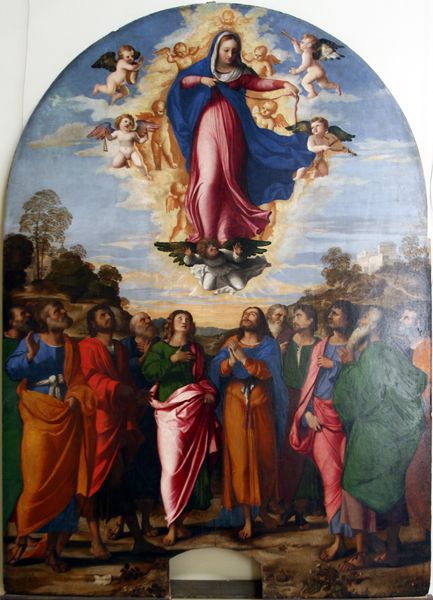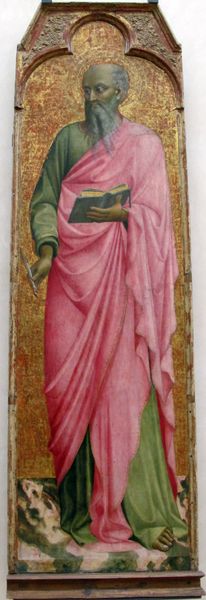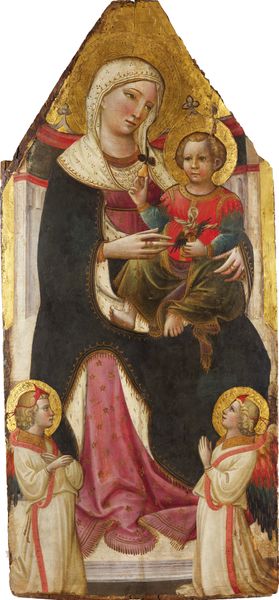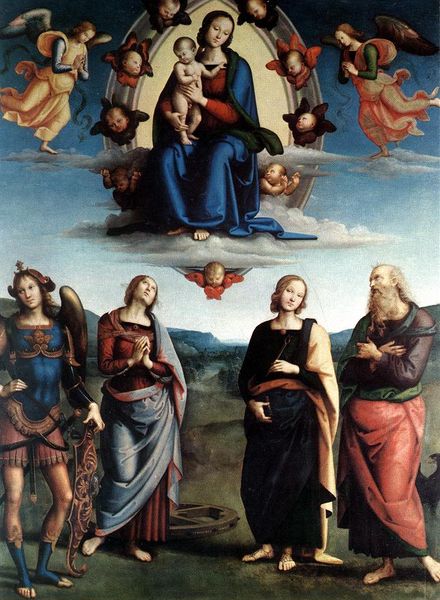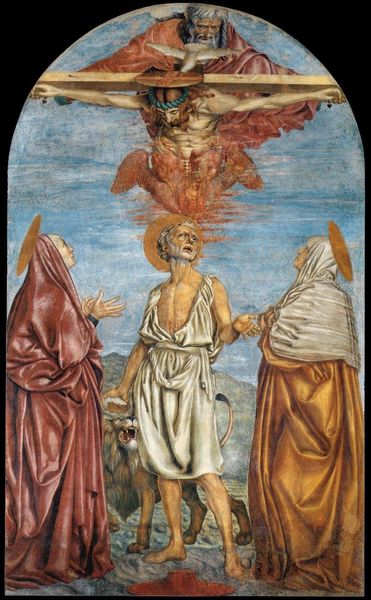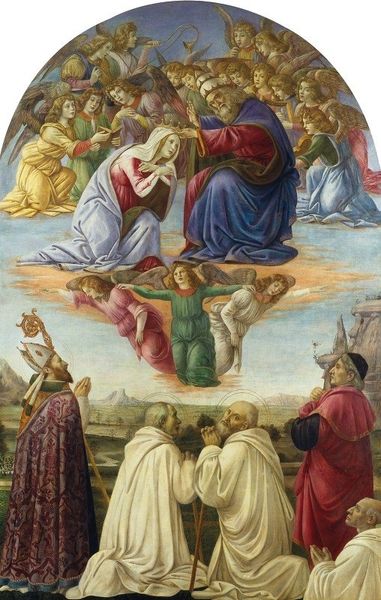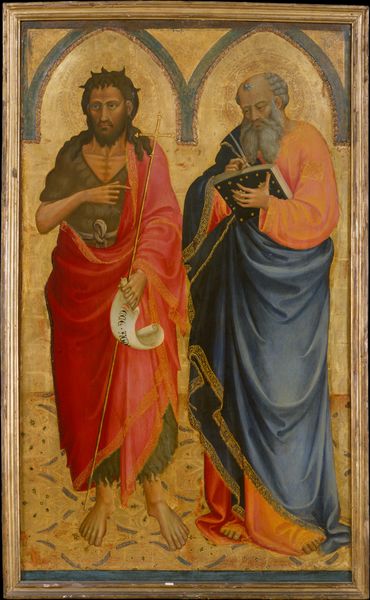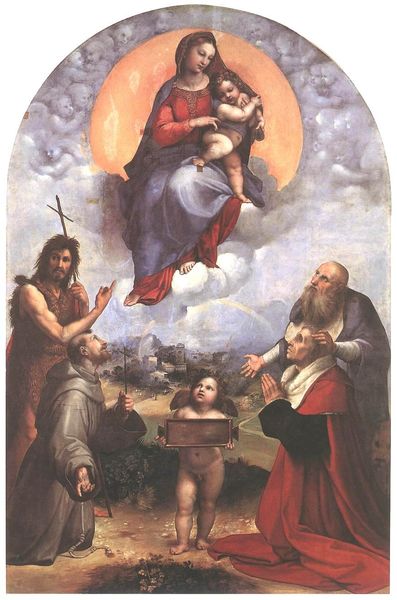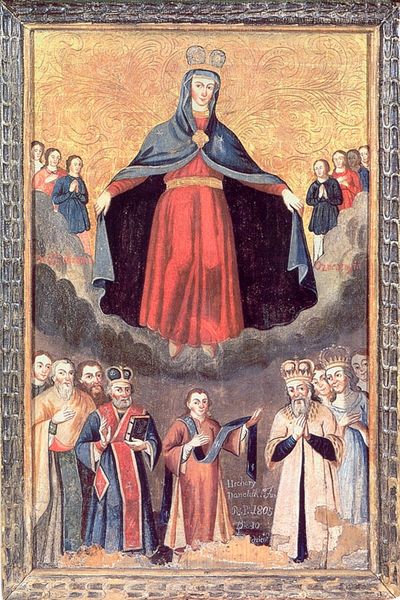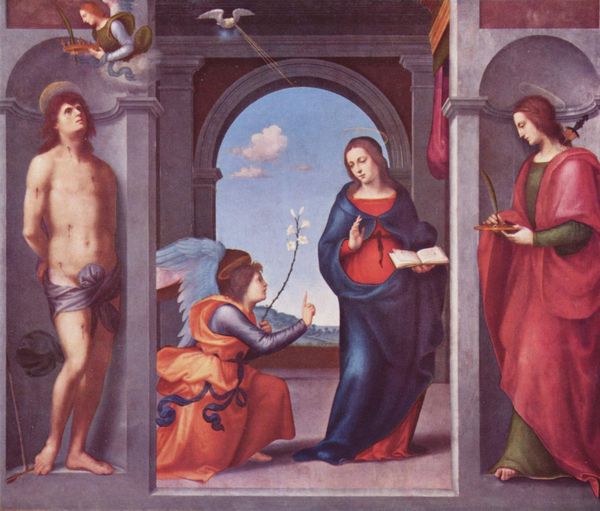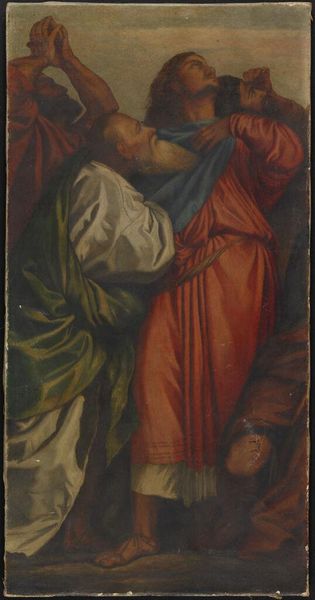
painting, fresco
#
portrait
#
painting
#
figuration
#
fresco
#
oil painting
#
jesus-christ
#
christianity
#
italian-renaissance
#
portrait art
#
christ
Copyright: Public domain
Curator: Today we’re observing Andrea del Castagno's fresco from 1453, entitled “St. Julian and the Redeemer.” What strikes you most upon first glance? Editor: It’s definitely the visible application of the fresco that catches my attention. You can really see the materiality of the pigments mixed into the plaster. Curator: Indeed. Castagno paints a fascinating duality of earthly suffering and divine promise, wouldn’t you say? St. Julian stands below, seemingly anchored by the weight of his future deed and we can see his house behind him, versus Christ who floats in heavenly splendor. How does that reading sit with you? Editor: That seems a fair reading. The figures are situated within this intriguing tension between physical structure and ethereal dreamscape, showing that frescos depend on those layers in their making as well. We also see here Castagno pushing against what he was supposed to create. Curator: Precisely. I'm also intrigued by how Castagno depicts agency, or lack thereof, and destiny. The artist places Saint Julian with a building which he, most likely, didn’t have a big role in building, he found his home there but what he’s known for is what he built in heaven. Editor: The visible seams of the day’s work and painting come into focus even as the idealized narrative and religious iconography assert the traditional role of art, but also showing how something new is always the result of past materials. Curator: It's an invitation, perhaps, to delve deeper into the contradictions and complex moral terrain Castagno so deftly visualizes through materials and the construction. What would be your take away then from that, and how the average person can perceive the whole creation in his day? Editor: Thinking about this fresco through that framework, it urges us to consider art not just as representation but as a record of both labor and intellectual project—simultaneously reflecting and shaping the beliefs of its time. The average Joe in the 1450's would feel connected to it!
Comments
No comments
Be the first to comment and join the conversation on the ultimate creative platform.
